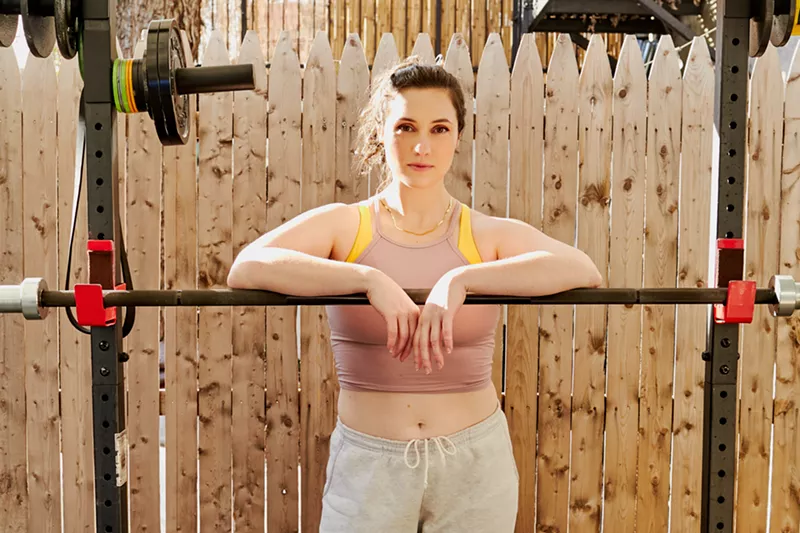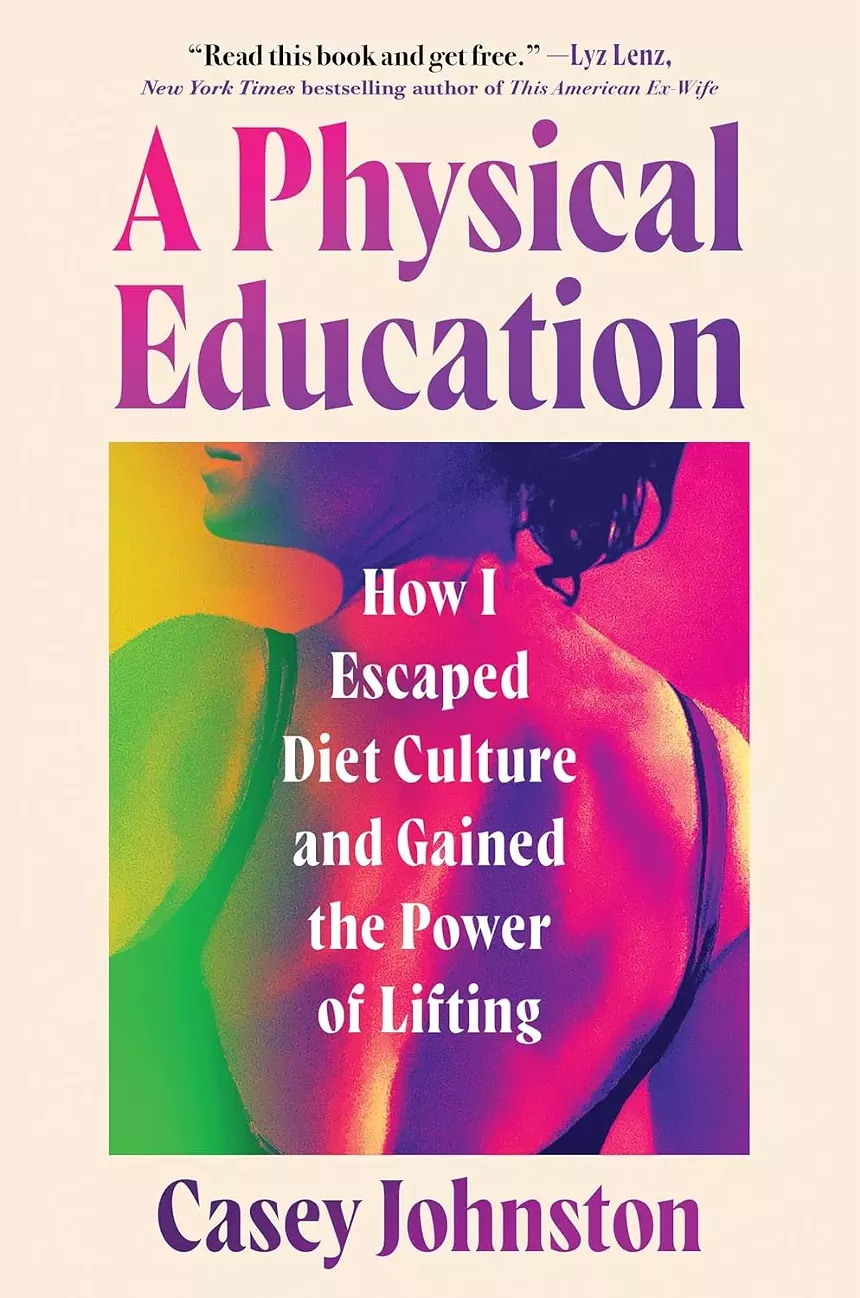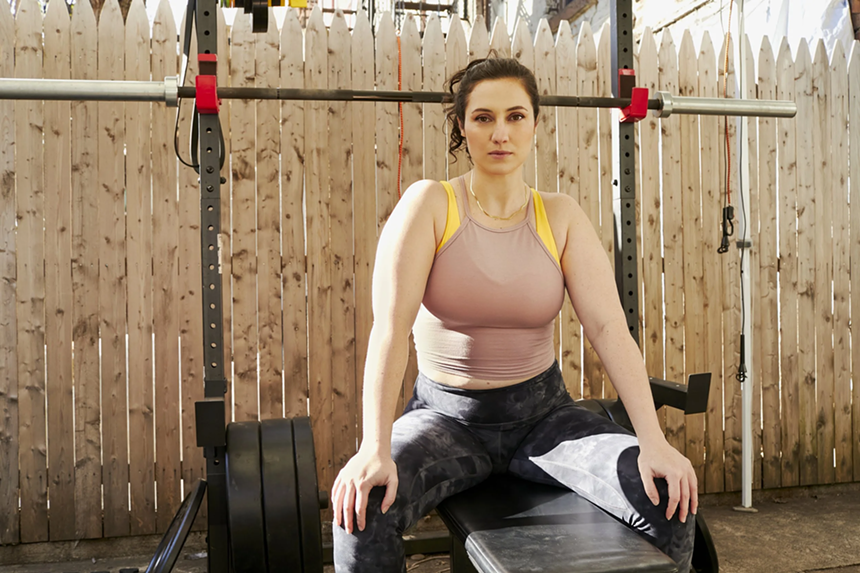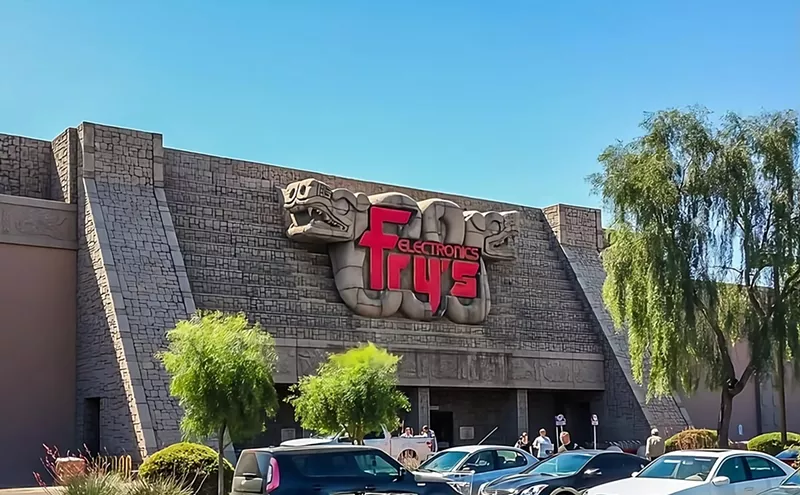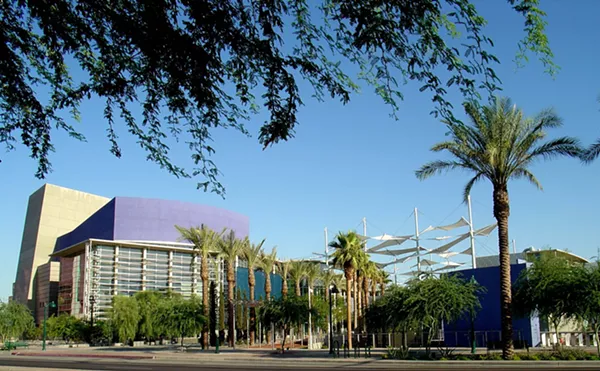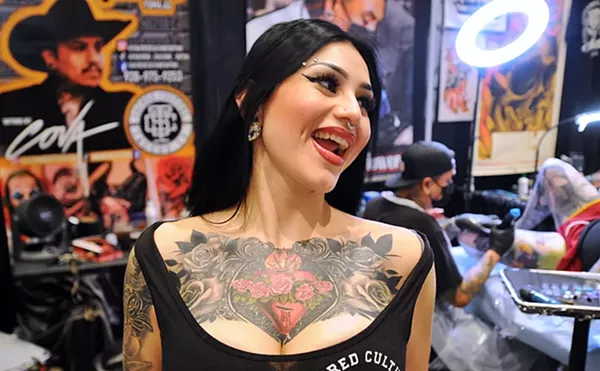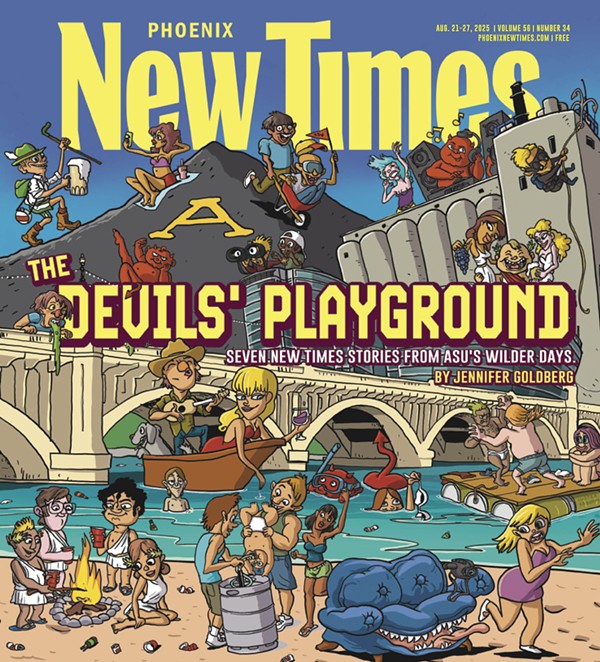One of the great joys of reading is getting to see the world through somebody else’s eyes. An unusual metaphor, a beautiful slice of imagery, a trenchant insight gleaned from someone seeing reality through an angle you can’t access yourself — these things can come together like a cluster of fireworks and set off dazzling sparks in your imagination.
Think of a writer describing the sensation of being in her body while struggling with squats and deadlifts with the line “I was swinging up the big handle in the breaker box of the haunted old theater that was my body.” It’s the sort of sentence that worms into your brain like a splinter, that makes you think of flickering stage lights and dark rooms the next time you pick up a heavy object off the floor.
That line about the body is one of several gems you'll find in the pages of Casey Johnston’s "A Physical Education: How I Escaped Diet Culture and Gained the Power of Lifting."
She'll be at the Tempe location of Changing Hands Bookstore at 7 p.m. on Tuesday, Aug. 26, to talk about her book. You can RSVP for the free event on Eventbrite.
Johnston, a journalist and editor, has been writing about weightlifting for years in her fitness advice column, "Ask a Swole Woman," her newsletter She's a Beast and in her earlier book, "Liftoff: Couch to Barbell."
"A Physical Education" is several books in one: a memoir about Johnston’s personal life and her fitness journey from reluctant runner to enthusiastic lifter; an exploration of the science behind weightlifting; a history of fitness culture that takes some fascinating detours; and a slice-of-life look at gyms and powerlifting.
Johnston’s experience as a journalist comes out in her prose, which is clear, concise and memorable.
“Creating strength is actually a process of rupture, rest and repair,” she writes early on in the book, an alliterative description of muscle growth that could also double as a neat summation of what a good book like "A Physical Education" does to you. You can feel the burn as it enlarges your conception of health and fitness, one chapter at a time.
We recently spoke with Johnston about "A Physical Education," grifters in the wellness community and what it’s like to be the person in her friend group that everybody goes to for lifting advice.
Phoenix New Times: There so many different elements in the book that you’re juggling: the autobiographical stuff, the history of fitness, the science of weightlifting, all these gym vignettes. Was it difficult weaving all these things together? Did you ever find yourself going, "Maybe I’m putting too much of this here"?
Casey Johnston: My hope is that it wouldn’t feel like it’s too much or goes in too many directions. I think that it was informed by the way that I say at the beginning of the book that I felt that starting to strength-train touched so many areas of my life and changed the way I think about so many things. I had to kind of ground that in reality, in what shaped the way I thought about my body or my relationship to work or my relationships with other people, with my family…
And then also to explore why do we have this tenor of discussion around exercise — like it’s a chore or an obligation. Why is it about achievement or holding up elite athletes versus encouraging facility and ability and skill-building for everyone — to raise the floor? It was a lot to wrap my head around and a lot of discrete areas to wrangle… I have spent a lot of my career as a journalist talking to many specialists and reading their work and drawing on a lot of different areas. I think this is one of the things that a book and a writer can be strongest at is synthesizing all of these different parts and helping people understand how the history of labor- for instance- speaks to our attitudes about exercise? How does someone’s traumatic family background speak to their susceptibility or interest in the cover lines of a women’s magazine? And how do all those things speak and not speak to each other?
With all the research you did for the book about the history of fitness and weightlifting, I was wondering if there any bit of history you uncovered that was particularly eye-opening for you.
I didn’t go into this book or lifting with a lot of knowledge about the history. I had sort of a casual understanding of the relationship between strength and exercise. But the Turners (members of German-American athletic clubs) were something that I found out about and learned more about in the process of researching the book, which I think deepened the thesis that I had about how I related to lifting and why it spoke to me … I have a general sense that a lot of the good things in life get co-opted by people in power for capitalistic ends, let’s say. It was kind of gratifying to find out that the same thing had happened with strength in a way.
One thing that really resonated with me was how you wrote so vividly about feeling like an outsider at the gym. As a man, I can’t relate to the feelings of being objectified in public that you write about, but as someone who’s been fat for most of my life, I know that feeling of being in a gym and going, “Oh, everybody’s looking at me. I don’t belong here.” Do you still feel that anxiety at the gym of being observed?
I would say less so. Part of that is coming from experience and part of it may be coming from getting older, which I think is a continuous process of caring less what people think about what you’re doing, feeling more confident and you have your reasons and you don’t need to explain them to everybody. I’ve often compared (the experience) to starting at a new school or office. People don’t put as much pressure on themselves about those spaces because they’ve probably done it before. They have a more reasonable expectation of, like, ‘I’m new here, I don’t know what’s going on, no one’s given me a computer yet.’ You’re allowed to have that same relationship with the gym where you don’t know anything. You have to give yourself room to build your experience with it.
Going back to capitalism: It feels like wellness in general in the RFK Jr. age is a pretty grifter-heavy space. Is there much of that in weightlifting? Aside from steroids, it feels like there’s not as much room to do wellness grifts in lifting because there are certain objective facts you can’t get around. A barbell is a barbell; it weighs what it weighs. Have you seen that kind of grifting taking hold in your community as well?
Grifting is really a kind of marketing. It's marketing that creates a rather extreme insecurity, which I feel you can do with everything. I can’t immediately think of somebody who you might say their only thing is barbells and they’re a huge grifter. But I think that more so comes down to values and integrity and authenticity. ... It's very difficult online to grasp the entirety of what somebody is about. You might think somebody is a really cool influencer and then all of a sudden, they’re saying politically problematic things.
In the book, you talk about how when you got into lifting, you kind of became the go-to person in your friend group for people who were curious about lifting and wanted advice. Are you still that person today? Do you find yourself being that person for strangers because of your newsletters and advice column?
Yeah, I think so. And not only that: When people are excited about something that happens for them or to them at the gym, I’m the one they tell cause they know that I’ll appreciate it. "Oh, I hit a new PR on my deadlift" or "I figured out how to do a pull-up." People tend to contact me about that as much as they ask me questions about what to do.

Audio By Carbonatix
[
{
"name": "GPT - Billboard - Slot Inline - Content - Labeled - No Desktop",
"component": "21251496",
"insertPoint": "2",
"requiredCountToDisplay": "2"
},{
"name": "STN Player - Float - Mobile Only ",
"component": "21327862",
"insertPoint": "2",
"requiredCountToDisplay": "2"
},{
"name": "Editor Picks",
"component": "16759093",
"insertPoint": "4",
"requiredCountToDisplay": "1"
},{
"name": "Inline Links",
"component": "17980324",
"insertPoint": "8th",
"startingPoint": 8,
"requiredCountToDisplay": "7",
"maxInsertions": 25
},{
"name": "GPT - 2x Rectangles Desktop, Tower on Mobile - Labeled",
"component": "21934225",
"insertPoint": "8th",
"startingPoint": 8,
"requiredCountToDisplay": "7",
"maxInsertions": 25
},{
"name": "Inline Links",
"component": "17980324",
"insertPoint": "8th",
"startingPoint": 12,
"requiredCountToDisplay": "11",
"maxInsertions": 25
},{
"name": "GPT - Leaderboard to Tower - Slot Auto-select - Labeled",
"component": "17012245",
"insertPoint": "8th",
"startingPoint": 12,
"requiredCountToDisplay": "11",
"maxInsertions": 25
}
]

